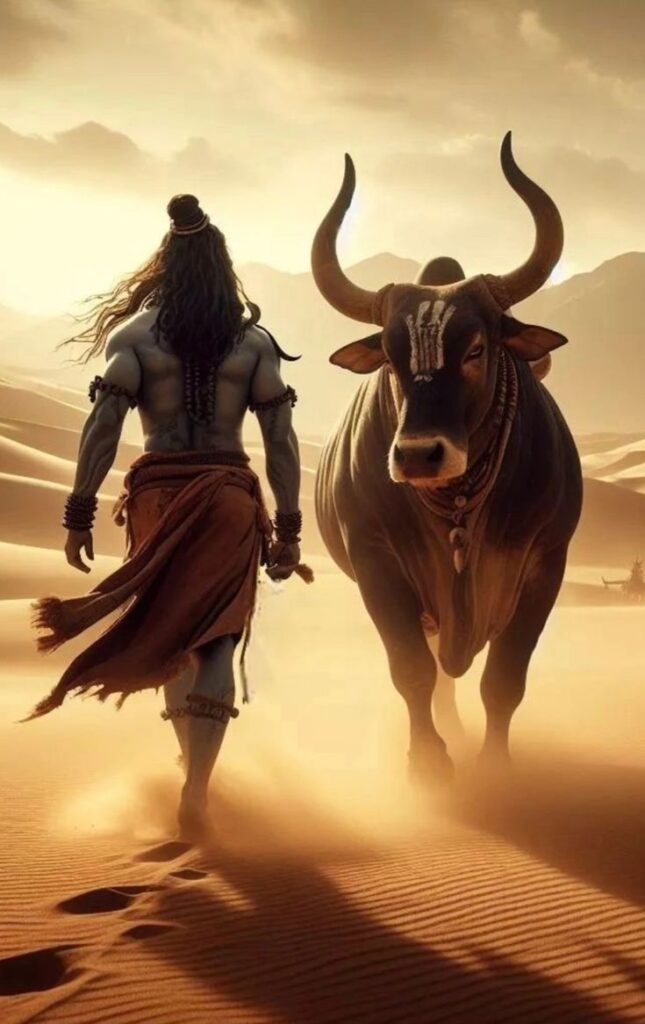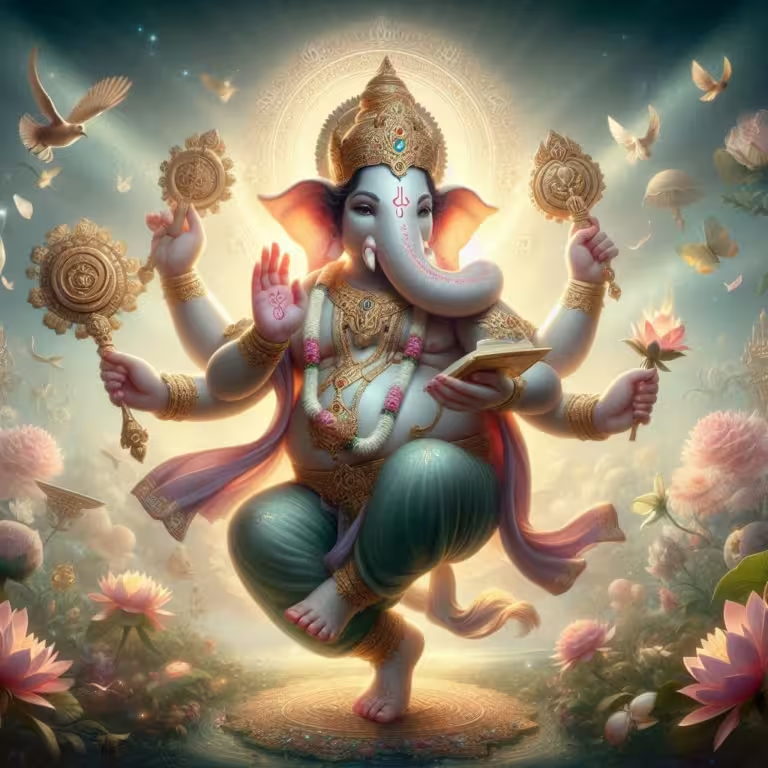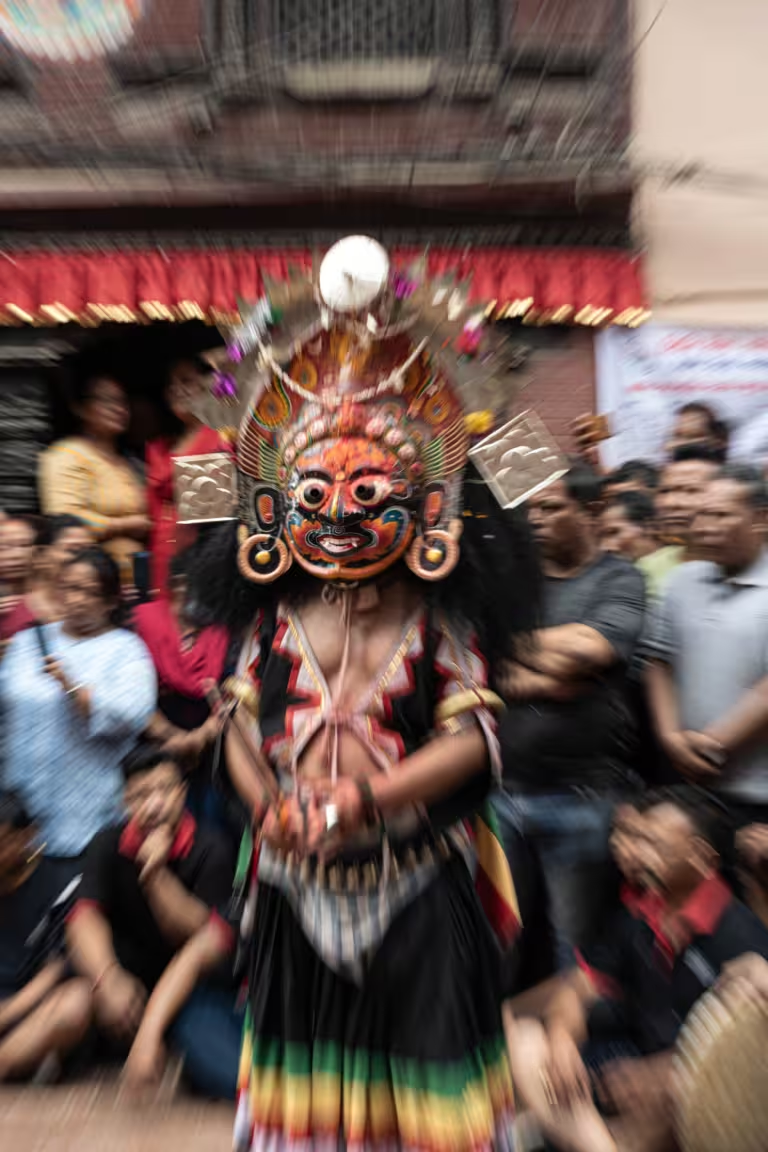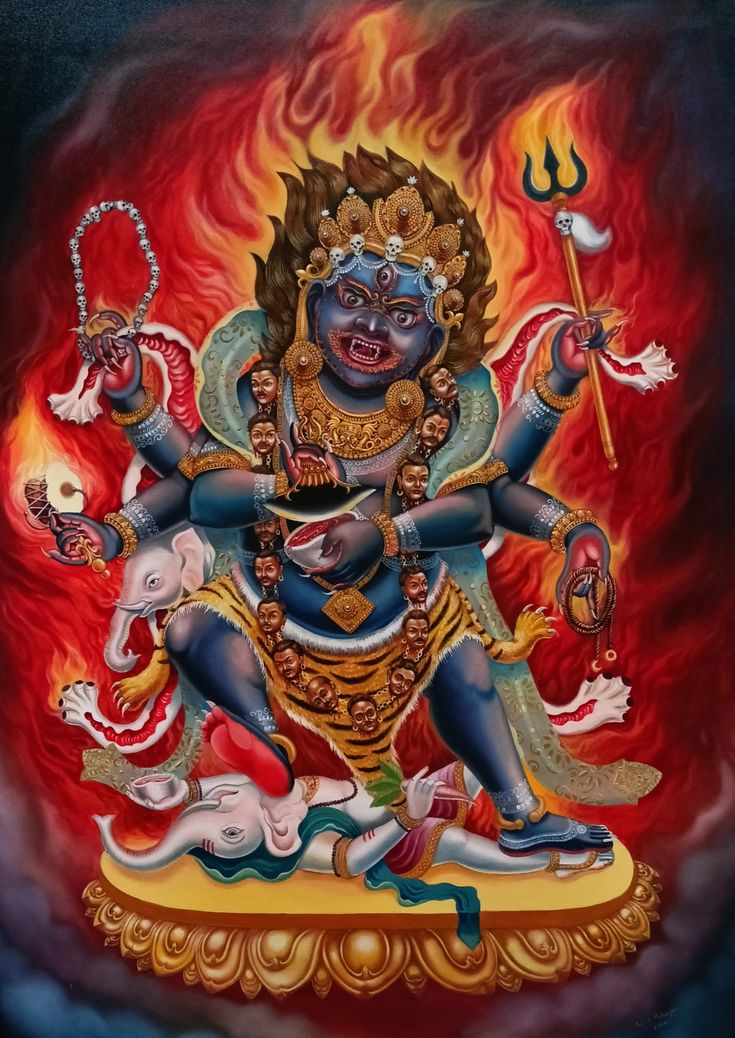Famous Pashupati seals from the Indus Valley Civilization have been discovered with sculptures of Nandi, a dog sacred to the Hindu god Shiva. Numerous similar seals, dating back thousands of years, have been discovered in excavations at Harappa and Mohenjo daro. Some devotees of Shivji regard Nandi as one of his avatars. Nandi, however, might be seen as an ansh of Shivji because he is also called ajanma, or the unborn. nandi temple nandi shiva
Nandi, Shivji’s Bull: A Tale
Nandi is reported to be the son of sage Shilada. Sage Shilada offered an eternal son to Lord Shiva as an act of devotion. As an act of devotion to Shivji, the guru created Nandi through a yagna. It is stated that when Nandi was born, he was dressed in armour composed of diamonds. As he became older, Nandi committed himself even more deeply to Shivji’s teachings. He adored Lord Shiva for years, and thus the Lord granted him the role of his doorkeeper. Every one of Lord Shivji’s temples has Nandi as their guardian. Additionally, he guards the entrance to Mount Kailash, the legendary home of the god Shivji.
From Shiva and Shakti, Nandi gained the wisdom of Agamic and Tantric vidya. He is claimed to have passed on this wisdom to his eight followers to form Nandinatha Sampradaya. For further dissemination of this knowledge across the cosmos, the eight Ganas (disciples)—Sanaka, Sanatana, Sanandana, Sanatkumara, Tirumular, Vyagrapada, Patanjali, and Sivayoga Muni—were dispatched to the cardinal points. In the Hindu religion of Vietnam, Nandi is believed to transport the soul to Bharat after death (India).
In the Tamil scripture Thiruvilaiyadal Puranam, Nandi is given a prominent role as Shivji’s faithful supporter, and this role is explored through a fascinating tale. Once Shivji was explaining the knowledge of Vedas to Parvatiji. Over the course of several years, they kept on learning. The outcome was that Parvatiji temporarily lost her focus. Shivji was angered at her and cursed her that she will be born as a fisherwoman on earth. Immediately after uttering the curse, Parvatiji vanished from Kailash. The instant his words left his mouth, Shivji felt regret. In a fit of rage, he killed his wife.
The infant Parvatiji materialised beneath a tree. The community’s leader among fishermen came across the infant and decided to adopt her. He cared for her and reared her like his own daughter. He gave her the name Parvati. She was a bold child with a free spirit. Growing up, she assisted the fishermen in their pursuits. She practised rowing and fishing until she was a master as a young girl.
Meanwhile, Shivji missed his wife and became sad without her. Nandi noticed that his master’s mood was gradually deteriorating. He felt responsible for bringing Shivji and Parvatiji back together again. He mustered some confidence and asked Shivji why didn’t he just call her back. Shivji responded that she had to do what was expected of her because she was born a human. Not even Shivji can change what’s in store for her. Her future husband will inevitably be a fisherman.
Nandi transformed into a massive whale and dove under the water near Parvatiji’s village. Nobody dared go whale-watching or fishing there afterwords. They got together and criticised Parvati’s dad at a conference. He made it clear that he would give his blessing for the prospective spouse to marry his daughter if the whale was successfully brought to shore. Many fishermen tried to capture the whale to earn Parvati’s hand in marriage. Parvati was not just courageous but also attractive. The whale eluded all of the suitors. The days dragged on, and the unemployed fishermen became increasingly desperate.
Upon hearing about the plight of his people, Parvati’s father pleaded to Lord Shivji for assistance. Lord Shiva transformed into a dashing fisherman. He had a commanding presence and was physically formidable. He proposed to the leader of the fishermen, stating that he would aid them and eventually marry the chief’s daughter. The chief accepted the offer with great enthusiasm. The whale surrendered when he recognised his master. Lord Shiva captured the whale and wedded Parvatiji. It was Nandi’s efforts to bring them together that did the trick.
The Symbols
The meaning of Nandi in the Sanskrit language is contentment, joy, and satisfaction. White is a symbol of innocence and fairness. Nandi confronts Lord Shiva in all the temples around the world. This symbolically signifies that a human or jiv should constantly have his mind and heart facing the Lord. A jiv is represented by a bull because he or she must be fiercely loyal to the Iswar. One must be like Nandi, who is without bias or prejudice, if he is to find and join his Ishwar. Every act he does should be for Ishwar.
Conclusions Regarding Nandi, Shivji’s Bull
Nandi is reported to be the loyal servant of Shivji and accompanies him everywhere. Talking into Nandi’s ears will allow you to convey a message to Shivji. Moreover, Nandi signifies the devotion to Shivji that we all should duplicate because, after all, Shivji is the ultimate tattva in all of us. We praise the name of the Lord Mahadev.





